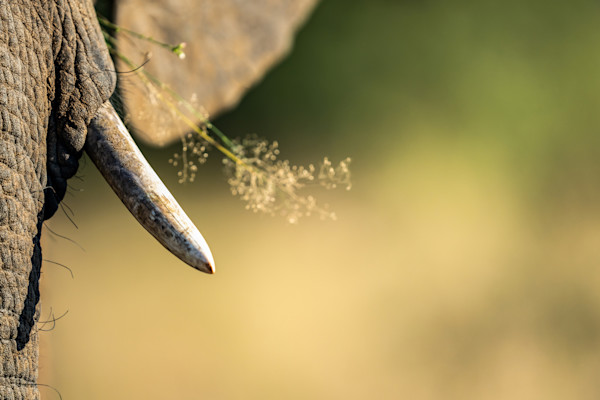
August 2021
Biodiversity
Celebrating & protecting an African icon
in BiodiversityShare:
Celebrating & protecting an African icon
The 10th of August is World Lion Day. A symbol of strength, majesty, power and beauty, lions are also synonymous with all that the wild represents. And while the day is an opportunity to marvel at their magnificence and celebrate them as a species, far more important is the opportunity it presents to raise awareness of their plight and generate support for their survival.
A indicator of the overall health of the ecosystem, when lions thrive, so does the rest of the delicate balance of nature. Their value goes beyond ecological and cultural, though. Economically too, they represent huge value for the African continent – their popularity bringing people from all over the world, directly and indirectly generating vast tourism revenue and significant employment.

WATCH for a recap of some of the most important things to know about World Lion Day, and why it's crucial in raising awareness for the fight for their survival
The fight continues
The population of lions in the wild has declined by half in the last 25 years, with lions only occupying 8% of their historic range, and their numbers hover somewhere between 20,000 and 25,000 – with experts estimating it might even be lower.
‘The range of decline is staggering, and has taken even those in the conservation industry by surprise,’ says Peter Lindsey, director of the Lion Recovery Fund. Threats to their prosperity range from habitat encroachment, hunting, and poaching for body parts to retaliatory killing, snares, and loss of prey to the bushmeat trade. A multifaceted problem requires a multipronged approach and as a result, the Lion Recovery Fund employs a layered strategy and wide range of key interventions, from raising funding for quality land management, to tackling the illegal wildlife trade (bushmeat and lion parts), and the promotion of the harmonious coexistence of humans and wildlife.


The multilayered threats that face lions require an equally agile conservation approach, that tackles each challenge to their survival
Four years of progress
While the ongoing quest to ensure this species’ survival is beset by challenges, there has been much progress. In the four years since the establishment of the Lion Recovery Fund, the organisation has granted $19-million to 158 innovative lion conservation groups in Africa and has brought together Africa’s top ecotourism operators to support lions through the Lionscape Coalition, of which Singita is a member.
Designed to help increase collaboration by bringing important tourism companies behind a single coordinated goal, the Lionscape Coalition ensures that tourism dollars benefit not only lions in areas where tourism is possible but also those in places too remote or too politically unstable for tourism to operate in.

The Lion Recovery Fund has united some of Africa’s top ecotourism operators to support lions through the coordinated efforts of the Lionscape Coalition, of which Singita is a member
Lindsey asserts that while threats continue, we do have the tools to save the species. ‘The political will for conservation in African countries is ironclad. Secondly, Africa has set aside large areas for conservation and if the land was managed optimally, Africa could support three to four times the number of lions it currently does. Thirdly, if one protects the habitats, lions themselves are able to rebound rapidly. Lastly and most encouragingly, we have the conservation interventions that we know work. We just need the funds to implement them at scale,’ he says.


So much more than just a symbol of the African wild, lions play a powerful role in the ecological and economic health of the continent
Land of lions
Across the regions in which we operate, guests have the opportunity to see majestic lion prides in their natural habitats. Singita Kruger National Park however, is especially renowned as a rewarding lion-viewing destination.
Spanning 33,000 acres, our private concession on the eastern edge of the Kruger National Park in South Africa is known for its dramatic landscape as well as a high concentration of iconic African wildlife. This resulting abundant prey and a habitat conducive to big cats draws many to the area, with lions especially prolific. With eight prides of lion and the occasional interlopers who battle them for territory, the ‘Lebombo Lions’, so named for the Lebombo mountain ridge that dissects the concession, is one of the best places in the world to see these beautiful creatures in nature.

While each of our regions offers memorable sightings of the species in their natural habitat, Singita Kruger National Park is renowned as an especially impressive lion-viewing destination
What can you do?
This World Lion Day you can help expand protection for wild lions and their habitats by supporting the Lion Recovery Fund - by raising awareness, or donating (and thereby supporting the many conservation initiatives they roll out worldwide). One hundred percent of all funds raised is chanelled into lion conservation efforts and projects. Learn more, and contribute here >

The great strides the Lion Recovery Fund has made over the last four years is only possible through the support of those committed to saving the species

By Julia Freemantle
Author


